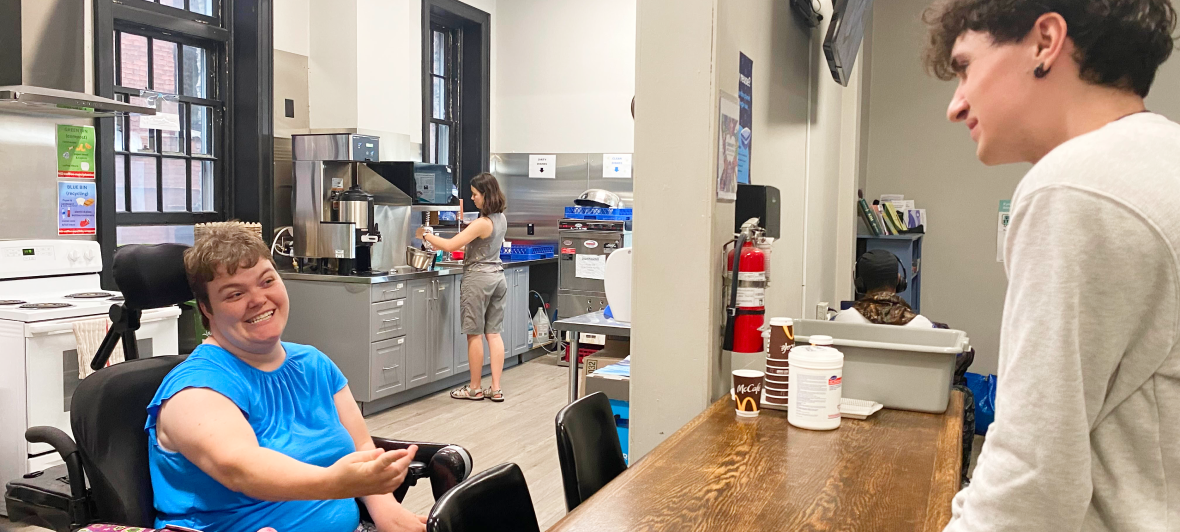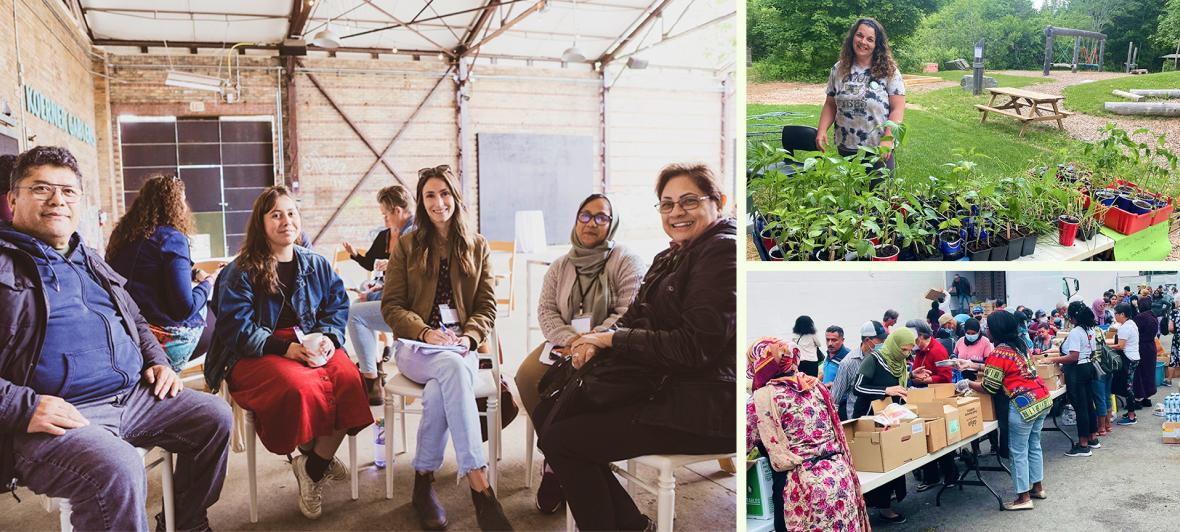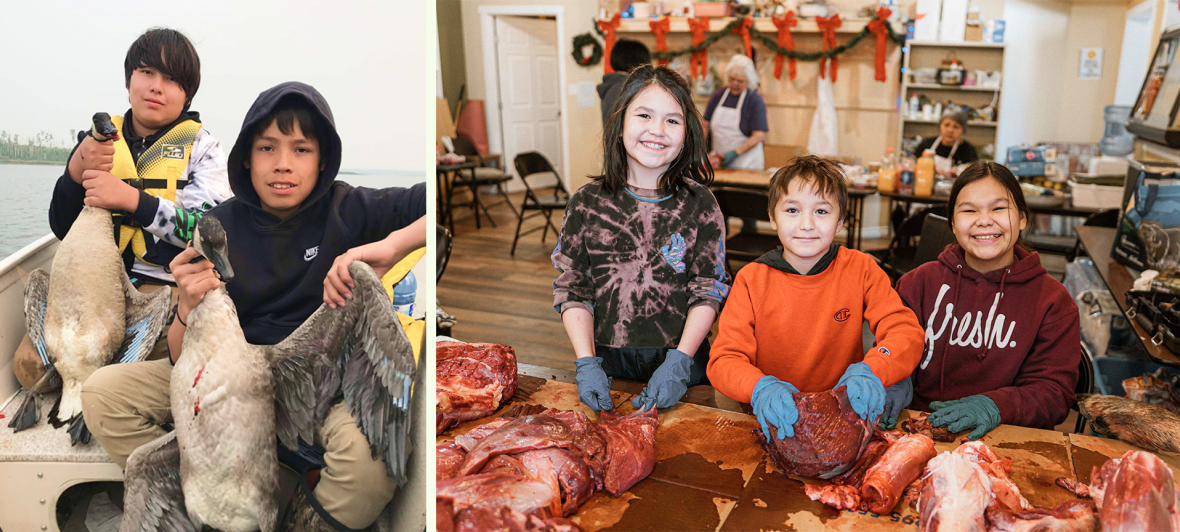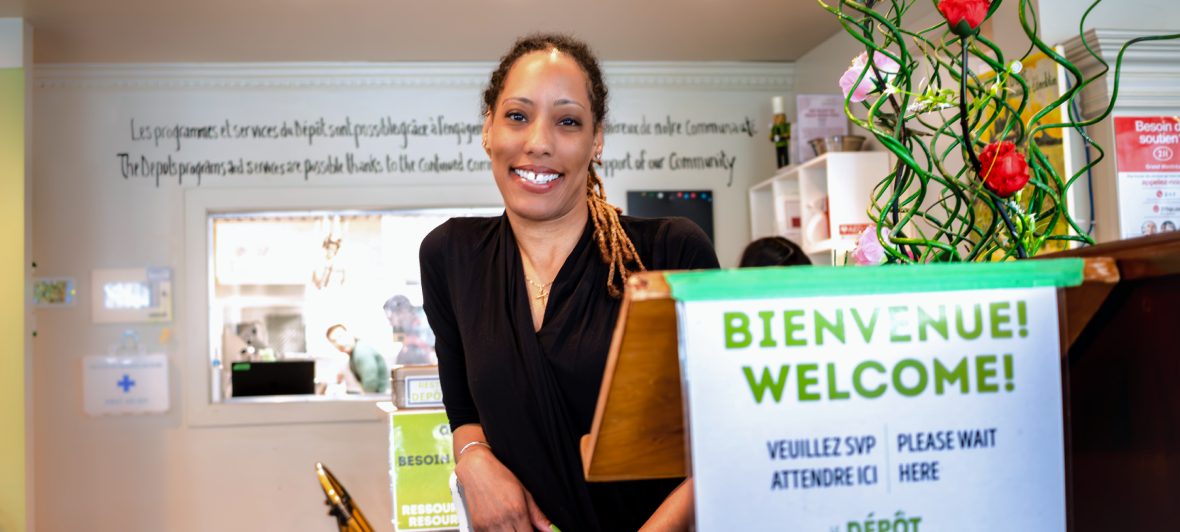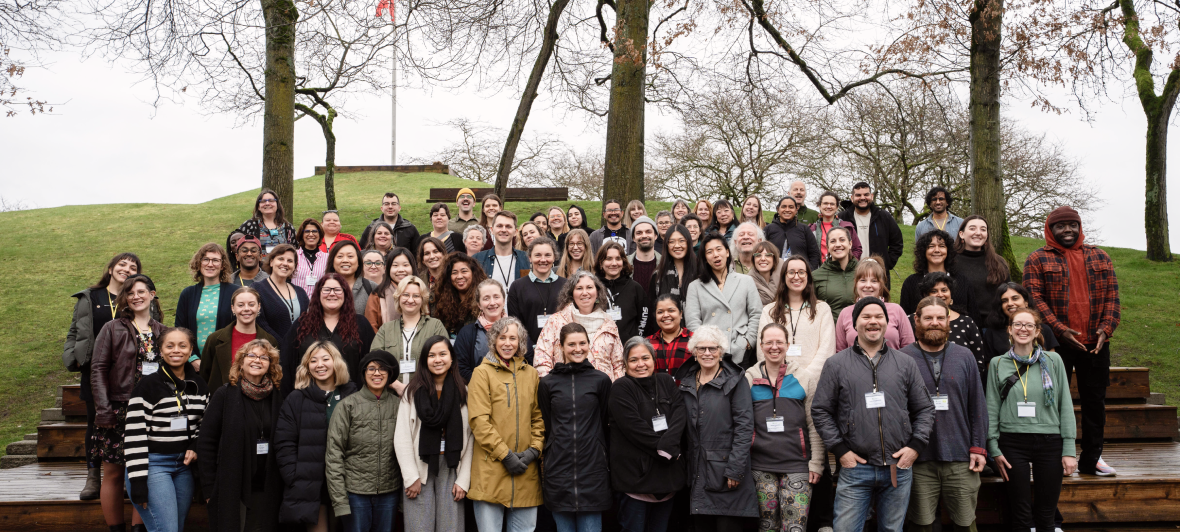

Participants at the BC Gathering. This conference also hosted the inaugural meeting of the BC regional network. (Photo by Fredwaack Productions, 2024.)
A new groundswell of support
Earlier this year, frontline staff began to gather, region by region.
As part of our network of 400+ partners, they hail from hundreds of community food organizations across the country. They were creating something special: a groundswell of unified support for food security.
At each online gathering, a regional network coordinator welcomed participants. It was a mosaic of smiling faces, energized by the moment. And in February, 70 excited participants were welcomed in person at our BC Gathering in Vancouver.
With these clusters coming together across the country, Community Food Centres Canada (CFCC) officially launched our regional networks. The networks are a new way of advocating for food security.
Although the participants have been meeting regionally, the focus is federal. These frontline staff know: Across the country, food insecurity is a growing crisis that has reached a historic national high.
Jordan Bultitude is the coordinator for the BC regional network. For them, the federal focus is especially galvanizing.
“It’s amazing to see a national coordinated effort to rally folks working in food security,” they reflect. “This opportunity that’s been funded, that has the resources to actually connect everyone across the country—I’m very, very excited about it. It’s very rare.”
For some frontline staff in the community food sector, it’s rare to be doing any advocacy work at all. “The frontlines are always so demanding,” says Renée Mackillop, coordinator for the Prairies regional network. “It’s really hard to step back and get involved in that upstream policy work. But what’s so encouraging is that the organizations involved in the network want to be doing this work and they really want to do it collectively.”
This summer, organizations in the networks got down to work. They hosted MP visits. Along the way, they got support from their regional coordinators and CFCC—like workshops on talking with their MPs and financial support to stage MP visits. They made plans for the coming year. They built relationships locally and raised awareness about poverty and food insecurity in their regions and ridings.
With 2024/25 being an election year, the groundswell created by the regional networks is coming at a critical time.
As Jordan stresses: “I can’t emphasize enough the importance of unified community pressure on decision-makers to make systemic policy change. We need to be using our collective power to make noise—and make sure that decision-makers know about the change we need in our communities.”
